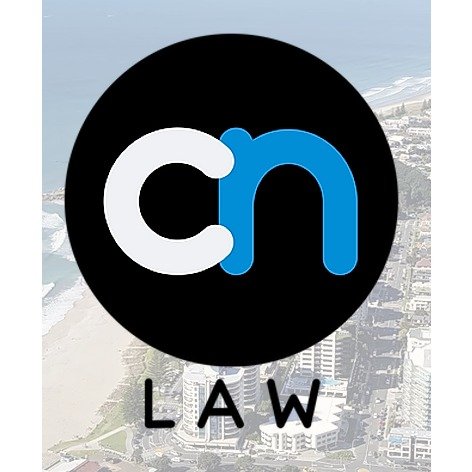Best Divorce & Separation Lawyers in New Zealand
Share your needs with us, get contacted by law firms.
Free. Takes 2 min.
Free Guide to Hiring a Family Lawyer
Or refine your search by selecting a city:
List of the best lawyers in New Zealand
About Divorce & Separation Law in New Zealand
Divorce and separation laws in New Zealand are designed to facilitate the dissolution of marriage in a manner that is fair and equitable for all individuals involved. Known officially as "dissolution of marriage," the legal process allows spouses to end their marriage after a period of separation. In New Zealand, the Family Court handles these matters, and the system emphasizes mutual agreements and fair settlements, particularly when children are involved. The legal framework is based on the Family Proceedings Act 1980, under which individuals need to be living apart for at least two years to apply for a divorce.
Why You May Need a Lawyer
While it is possible to manage a divorce or separation independently, there are several scenarios where legal assistance may be necessary. These include disagreements on the division of property, complexities involving custody or guardianship of children, situations involving domestic violence, or cases where one party is not willing to fairly negotiate. A lawyer can provide clarity on legal rights and obligations, assist in creating binding agreements, and represent clients in court if necessary, ensuring that the legal process proceeds smoothly and fairly.
Local Laws Overview
Several key legal principles and laws are relevant to understanding how divorce and separation are managed in New Zealand:
- Family Proceedings Act 1980: Governs the process of divorce, outlining requirements such as a minimum two-year separation period.
- Property (Relationships) Act 1976: Regulates the division of property between spouses, typically aiming for equal sharing of matrimonial property attained during the relationship.
- Care of Children Act 2004: Focuses on the welfare and best interests of children in decisions affecting their care and custody.
- Domestic Violence Act 1995: Provides measures to protect individuals experiencing domestic violence, allowing for protection orders and access to safe environments.
Frequently Asked Questions
1. How long must we be separated before we can apply for a divorce?
Couples must be living apart for at least two years before they can apply for a divorce in New Zealand.
2. Do both parties need to agree to a divorce?
No, only one party needs to apply for the divorce. However, the applicant must prove that the separation requirement is met.
3. What is the process for dividing property?
The Property (Relationships) Act 1976 typically ensures an equal division of property gained during the marriage, but an agreement can be reached through negotiation or mediation.
4. How is child custody determined?
Child custody is determined based on the best interests of the child, with the Care of Children Act 2004 providing guidelines for parenting arrangements.
5. Can I apply for a protection order?
Yes, if you are experiencing domestic violence, you can apply for a protection order under the Domestic Violence Act 1995.
6. Do I need to go to court?
Not necessarily. Many issues can be resolved through mediation or negotiation, but court intervention may be required if agreements cannot be reached.
7. How much does it cost to get a divorce?
The costs can vary depending on whether legal representation is needed and if court proceedings are involved. The application for divorce itself has a fixed fee.
8. Can we settle divorce matters without a lawyer?
It's possible to settle matters independently or through mediation, but legal advice is recommended to ensure fair and comprehensive agreements.
9. What if my partner doesn't agree to separation terms?
If there's a disagreement, mediation or legal representation may be necessary to help negotiate a fair settlement.
10. Can I get an interim order for child custody?
Yes, you can seek an interim parenting order if it's urgent to determine temporary custody arrangements.
Additional Resources
For more information or support, consider reaching out to the following resources:
- Family Court: Offers guidance and handles all applications related to divorce and separation.
- Citizens Advice Bureau: Provides free advice and information on a range of issues, including family law.
- Community Law Centres: Offer free legal help and can assist with divorce and separation issues.
- Ministry of Justice - Family Law Section: A government resource for information on family law proceedings.
Next Steps
If you seek legal assistance in matters of divorce and separation, consider the following:
- Identify whether you need legal representation based on your situation.
- Contact a family lawyer who specializes in divorce and separation, or use a service like the Family Court or Community Law Centres to receive guidance.
- Prepare all necessary documentation, including details of your property, financial situation, and any agreements made with your spouse.
- Attend mediation sessions if required, as they can provide a more cost-effective and cooperative means of resolving disputes.
Lawzana helps you find the best lawyers and law firms in New Zealand through a curated and pre-screened list of qualified legal professionals. Our platform offers rankings and detailed profiles of attorneys and law firms, allowing you to compare based on practice areas, including Divorce & Separation, experience, and client feedback.
Each profile includes a description of the firm's areas of practice, client reviews, team members and partners, year of establishment, spoken languages, office locations, contact information, social media presence, and any published articles or resources. Most firms on our platform speak English and are experienced in both local and international legal matters.
Get a quote from top-rated law firms in New Zealand — quickly, securely, and without unnecessary hassle.
Disclaimer:
The information provided on this page is for general informational purposes only and does not constitute legal advice. While we strive to ensure the accuracy and relevance of the content, legal information may change over time, and interpretations of the law can vary. You should always consult with a qualified legal professional for advice specific to your situation.
We disclaim all liability for actions taken or not taken based on the content of this page. If you believe any information is incorrect or outdated, please contact us, and we will review and update it where appropriate.
Browse divorce & separation law firms by city in New Zealand
Refine your search by selecting a city.















